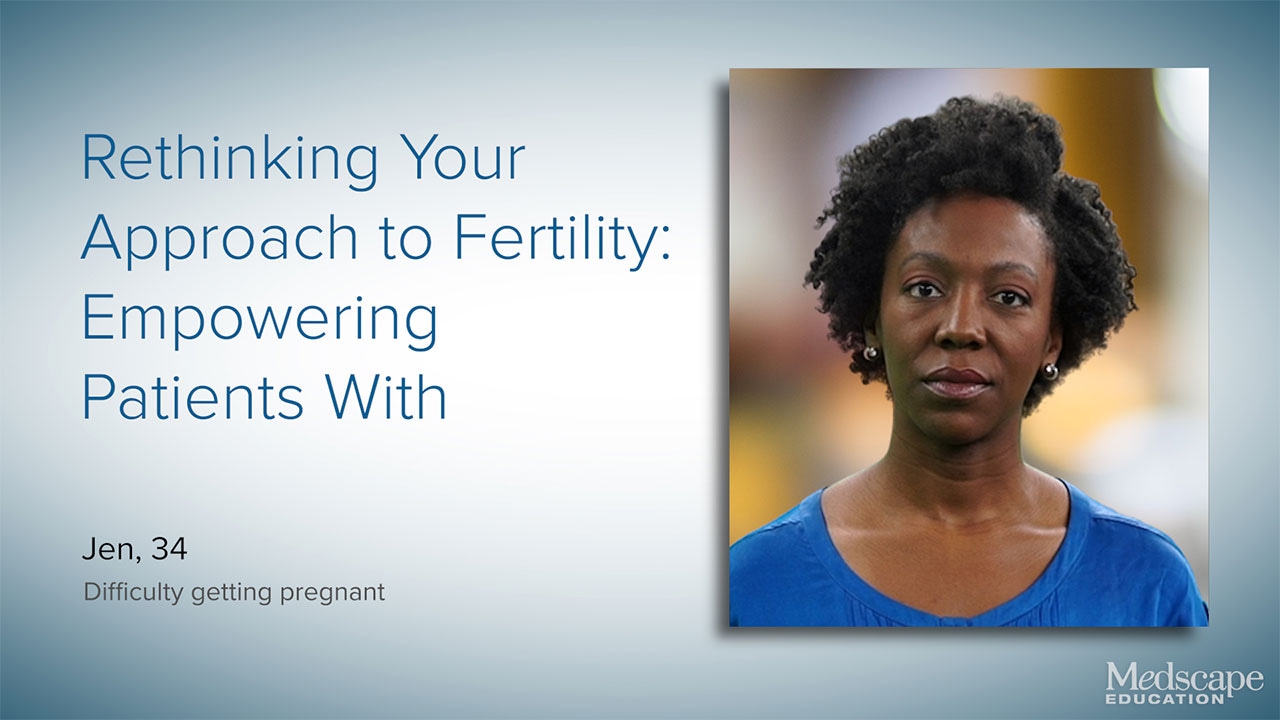Hello. I am Dr Ranit Mishori, professor of family medicine at Georgetown University School of Medicine. Today, I want to talk about preconception care in men rather than women, based on a recent position paper from the American Academy of Family Physicians.[1]
Preconception Interventions for Men
Traditionally, family planning and preconception care programs, research, and clinical management guidelines have focused almost exclusively on women. However, there is increased recognition that men's reproductive health needs should not be overlooked or neglected.[2,3,4,5] Men's reproductive health needs before pregnancy and the effect of a man's health status on conception and pregnancy outcomes generally receive little attention until fertility issues arise.
When you think about preconception care and counseling for men, the goals in many ways are really similar to those of women. The overall objective is to ensure optimal and positive outcomes of reproductive and sexual behaviors, while minimizing the potential negative consequences of unhealthy lifestyle and unprotected sex. There are three main areas that we need to think about as clinicians when taking care of men during their reproductive life.
1. Effects on fertility and conception. When we talk about fertility and conception in general, we are thinking about factors that can affect sperm quality, quantity, concentration, and motility. There are various substances, anatomical variations, behaviors, and environmental issues that can affect a man's ability to contribute to a successful conception and pregnancy[6,7,8,9,10]:
Certain health and surgical conditions, such as testicular conditions (eg, varicocele, history of testicular trauma, undescended testes, hypogonadism), diabetes, and erectile dysfunction may affect fertility to a certain degree.
Numerous medications (eg, nifedipine, spironolactone, steroids, testosterone, colchicine, selective serotonin reuptake inhibitors, cimetidine, tetracyclines) may alter the hypothalamic-pituitary-gonadal axis and may reduce male libido, contribute to erectile function, and have toxic effects on sperm.
Tobacco, alcohol, and certain drugs, such as marijuana and cocaine, can affect spermatogenesis.
Exposure to environmental hazards, such as radiation, heat, pollutants, lead, mercury, and other occupational chemicals, have been shown to affect sperm quality.
Hobby-related chemicals associated with woodworking, painting, pottery, stained glass, and gun cleaning may affect sperm production.
Stress has been shown to negatively affect sperm morphology and concentration.
Obesity—according to some studies, every 20 lb that a man is above his ideal weight can lead to a 10% increase in the odds of infertility.[10]
Several genetic disorders (eg, cystic fibrosis, Klinefelter syndrome, and polycystic kidney disease) may impair fertility and sperm quality.
2. Effects on pregnancy or maternal health. Lifestyle factors can affect the female partner and the pregnancy. Primarily, we are talking about smoking, which exposes the expectant mother to secondhand smoke and potentially has negative effects on the fetus.[11,12,13] Other issues include sexually transmitted infections and HIV, which can contribute significantly to maternal and fetal morbidity and sometimes even mortality.[6,7] There is a growing body of literature that suggests that the father's involvement during pregnancy and delivery can have a positive effect on the health outcomes of not only the man, but also his partner and their children.[14]
This is where I also want to mention the issue of intimate partner violence and any coercive relationships, and the negative effects they can have on the pregnancy and on the mother.[15]
3. Effects on fetal outcomes. There are additional paternal factors that have been shown to have an effect on fetal outcomes. We're talking about ethnic genetic conditions, such as Tay-Sachs disease in individuals with Ashkenazi Jewish ancestry and sickle cell anemia in African Americans. Screening for these conditions should be discussed and offered, if the need arises and maternal factors deem it necessary.[6,8] There has been recent research showing an association between advanced paternal age and conditions, such as autism, schizophrenia, and other mental health issues. Schizophrenia was found to be two times more likely to be diagnosed in the offspring if the father, at time of conception, was older than 45 years, and three times as likely for fathers over the age of 50 years.[16,17] Similarly, autism diagnosis in the offspring was found to be almost six times more likely if the father was over the age of 40 years.[18]
Key Takeaways
Overall, male reproductive health and preconception care are very important, and this is something that should be an integral part of every well-male visit. We need to assess man's understanding, goals, and intentions regarding reproduction. Should a man desire pregnancy with his partner, we need to discuss medications, conditions, and activities that may affect his fertility or the pregnancy. We need to conduct a physical examination, looking for some of the signs and symptoms of conditions that may affect fertility; discuss safe sex and pregnancy prevention strategies; assess the family history and genetic susceptibility; assess social history and lifestyle, including smoking, substance abuse, safe sex, and behavioral issues; and not forget to assess occupational hazards and exposure to chemicals through work or hobbies.
To prevent sexually transmitted infections (STIs), we should perform STI screening based on evidence-based guidelines. At all ages, we should consider screening for and counseling on intimate partner violence and the prevention of coercive relationships, including promoting respectful and consensual sexual relationships.
For more information, please read the recently published position paper from the American Academy of Family Physicians on preconception care for men and women.[1]
Thank you for listening. I'm Dr Ranit Mishori.
Follow Ranit Mishori on Twitter: @ranitmd
Follow Medscape on Twitter: @Medscape
Follow Medscape on Facebook and sign up for our newsletters.
© 2016 WebMD, LLC
Cite this: Preconception Counseling in Men: What Should Every Physician Know? - Medscape - Jun 13, 2016.









Comments